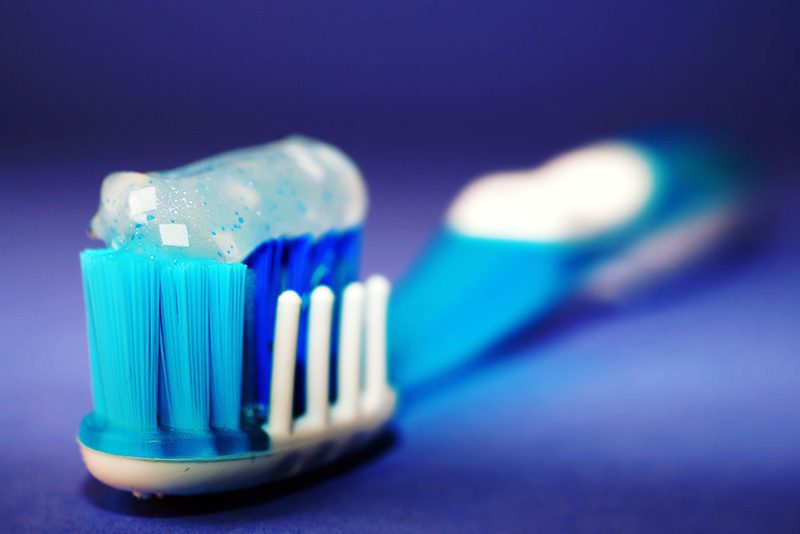Here at Advanced Indiana, we’ve talked about the importance of keeping regular checkups with your dentist to identify cavities and other possible dental conditions before they lead to serious problems. But when it comes to tooth decay, you may be wondering what your treatment options are. According to the University of Illinois Chicago’s Dentistry School, tooth decay is the second most common disease after the common cold. With this taken into account, it’s clear that knowing the best treatment options is vital to your overall dental health.
At Advanced Indiana we’re always discussing the best course of action when it comes to helping our patients manage and treat tooth decay with medications. Some of the most popular in-office treatments include fillings, crowns, and root canals, but we have yet to narrow our focus on medications. With this information, we hope you’ll feel prepared to work proactively with your dentist to eliminate the damage that tooth decay can cause.
What Is Tooth Decay and What Causes It?
Tooth decay is damage that occurs to the surface of a tooth, also known as the enamel. This decay occurs when bacteria in the mouth produce acids that attack the enamel, breaking it down. Eventually, the decay leads to other issues, such as cavities or gum disease. If left untreated, it can lead to severe tooth pain, infection, and even the loss of the tooth in some cases.
Treating Tooth Decay With Medication
The exact treatment for tooth decay is largely dependent on the severity. There are a wide variety of medications used in dental practice, and some of these are well-suited to combat the symptoms, such as tooth pain. However, in actually preventing decay, one medication reigns supreme: fluoride.
Preventing Decay With Fluoride Treatments
Fluoride is the leading medication used to prevent tooth decay. This mineral is absorbed by the teeth in order to strengthen them and make them more resistant to acid. Additionally, fluoride is known for blocking the cavity-forming action of bacteria. Fluoride is available on a non-prescription basis in the form of toothpaste found on just about every store shelf. You can also purchase fluoride mouth rinses and varnishes which greatly reduce tooth sensitivity. It should also be noted that prescription-strength fluoride is available in the form of a liquid and tablet to be taken by mouth once daily. Typically, prescription-strength fluoride is recommended and prescribed for those that do not have fluoridated water in their homes.
Before using fluoride to prevent decay, we highly recommend speaking with your dentist. For one, you should never take calcium, magnesium, or iron supplements without checking with your dentist. Additionally, you should let your dentist know if you are on a low-sodium or sodium-free diet before using fluoride treatments. Finally, be sure not to eat or drink any dairy products either one hour before or one hour after using a fluoride treatment.
Drugs to Control Plaque, A Leading Cause of Tooth Decay
Plaque is a leading cause of the development of tooth decay. With this in mind, it would make sense that controlling the formation of plaque would be one of the best and most proactive ways to prevent tooth decay. Luckily, there are medications used to control plaque, such as chlorhexidine.
Chlorhexidine is an antibiotic drug available either as a mouth rinse or gelatin-filled chip which is placed in the gum pockets next to your teeth after root planing. Once the chip is placed, the drug is slowly released over the course of a week. While chlorhexidine is a helpful medication for preventing the root cause of decay, it should be noted that this medication could increase the staining of tartar and plaque on your teeth. It may also cause staining of the tooth, filling, and dentures.
Drugs to Soothe the Tooth Pain
Finally, there are medications available to soothe the all too common tooth pain associated with tooth decay. Dental analgesics, also known as topical analgesics, are used to relieve pain caused by a variety of conditions. Dental analgesics are also frequently used to soothe the pain associated with dentures and braces.
Analgesics are available in a variety of applications. They are available as a prescription and over-the-counter in many forms, including dental paste, gel, lozenges, ointments, solutions, and aerosol spray. As a general rule, analgesics should only be used for temporary relief of pain until the toothache can be properly treated and are not intended for long-term use.
Best Medications for Early Stage Cavities
- Flouride gels/rinses
- Prescription toothpaste
- Silver Diamine Flouride
Not sure if you qualify for treatment? Schedule a consultation with our dentists today.
Dental Treatment You Can Rely On
Now that you know about some of the medications commonly used to treat decay, we would highly encourage you to make an appointment with your dental provider. One of the best preventative measures you can take to avoid any issues with your teeth is regular visits with your dentist.
Here at Advanced Indiana, we provide a wide variety of dental services that can help you prioritize your oral health. No insurance? No problem! We provide a membership program for those without insurance at both our Anderson and Fortville locations because we believe dental care should be affordable for everyone.
Start Treating tooth decay early with expert care from Advanced Dental Care of Indiana.
Photo by George Becker via Pexels

